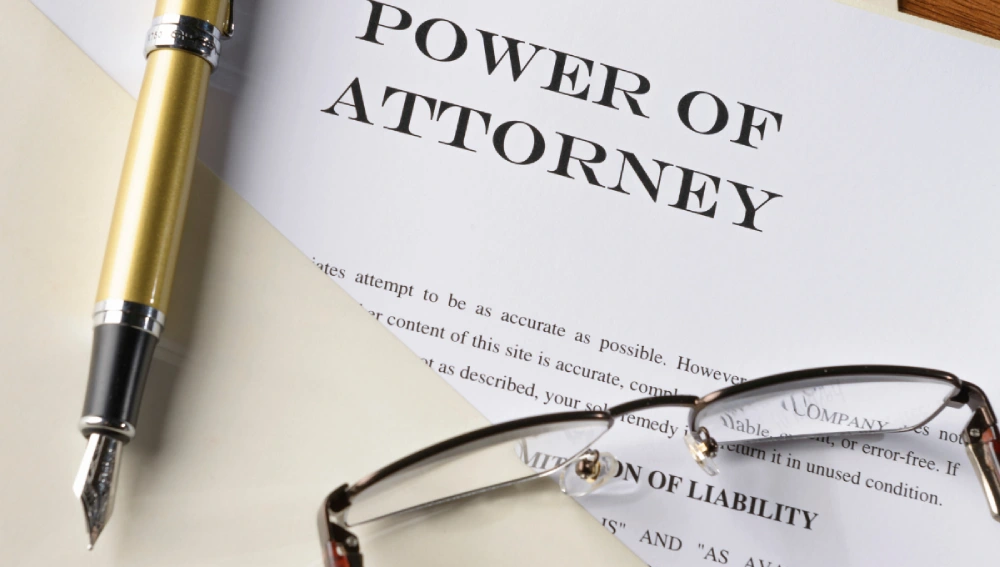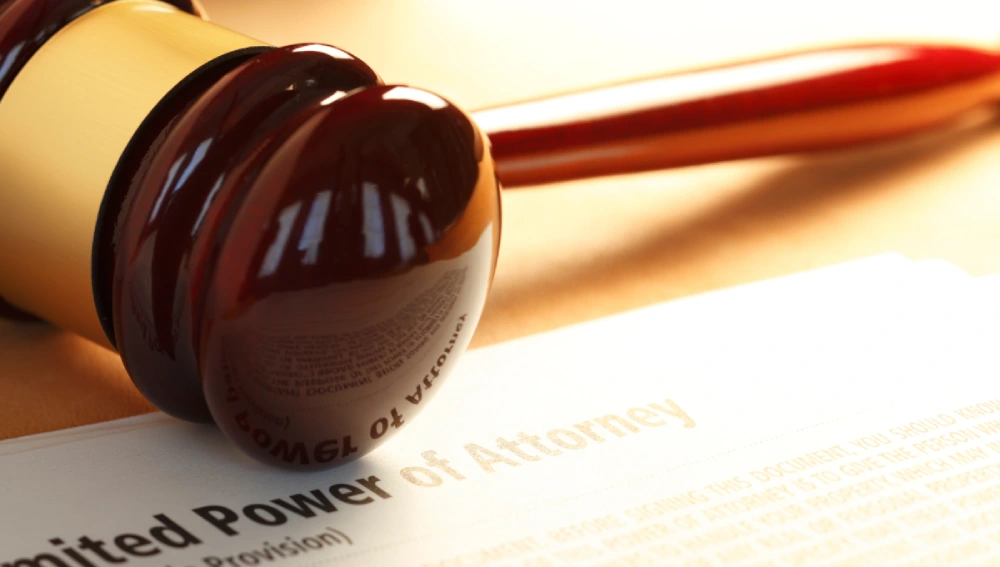If you’re handling legal matters for a loved one or preparing for future situations, understanding how a Power of Attorney (POA) works is crucial. One common question people have is whether a Power of Attorney remains valid after the death of the principal. The simple answer is no.
After death, the executor of the estate, as designated in the will, takes over the responsibility of managing the deceased person’s affairs. If there is no will, the court will appoint an administrator to handle the estate.
For detailed information, let’s dive into this blog without further delay.
What is Power of Attorney?

Power of Attorney (PoA) is a legal instrument whereby the principal grants the agent or attorney the authority to exercise powers on the principal’s behalf. It could be useful in handling any financial, health, or legal matters when the principal is incapacitated by illness or travel. The Power of Attorney ceases immediately upon the principal’s death.
Note: The principal is the individual who delegated his or her authority to another individual (the agent or attorney-in-fact) with the help of a Power of Attorney.
Validity of Power of Attorney After Death
Ceases at Death:
Thus, the key point to be noted is that a Power of Attorney loses its force and no longer has any legal effect after the death of the principal. This means that no legal defense for the deceased can be made by the agent anymore.
Why Does the Power of Attorney End?
Purpose Fulfilled:
The main purpose of a Power of Attorney is to allow someone to act on your behalf while you are alive. Once you pass away, there is no longer a need for someone to manage your affairs.
Legal Authority:
Besides, the PoA does not grant the PoA agent the right to manage the deceased’s affairs after death; this role goes to the executor of the will or the administrator of the estate appointed by the court.
What Happens to the Estate After Death?

Executor or Administrator Takes Over:
- If the deceased had a will, the executor named in the will takes over the responsibility of managing the estate.
- If there is no will, the court appoints an administrator to handle the estate.
Role of Executor or Administrator
- They are responsible for paying all outstanding debts, dividing and distributing the remaining property and assets among the heirs, and fulfilling any other legal responsibilities concerning the estate .
- Their authority is derived legally through probate, a legal process when the will is proven and the executor gets permission to act.
Steps to Take After the Principal’s Death
Obtain the Death Certificate:
- Why: The death certificate is one of the essential documents that prove the death of the principal.
- How: You can get the death certificate from the local municipal office or the hospital where the death occurred. It is important to get multiple copies, as you will need them for various legal and administrative processes.
Inform Relevant Institutions:
- Banks and Financial Institutions: Notify all banks, investment firms, and financial institutions where the principal holds accounts. Provide them with a copy of the death certificate to freeze the accounts and prevent unauthorized transactions.
- Insurance Companies: Inform life and health insurance companies to start the claim process.
- Government Departments: Notify relevant government departments like the pension office or the income tax department.
Locate the Will:
- Why: The will contains detailed instructions on how the principal’s assets should be distributed.
- How: Check the principal’s personal documents or consult their lawyer to find the will. If the will is registered, you can also obtain a copy from the local sub-registrar’s office.
Initiate the Probate Process
- If There is a Will: The executor named in the will needs to file for probate in the local court. Probate is the legal process that validates the will and gives the executor the authority to manage the estate.
- If There is No Will: Apply to the court for the appointment of an administrator. The court will issue a Letter of Administration, granting someone the authority to manage the estate.
Appointing an Executor or Administrator
- Executor: The person designated in the will to manage the estate. They will collect the assets, pay off debts, and distribute the remaining assets as per the will.
- Administrator: If there is no will, the court will appoint an administrator, usually a close family member, to manage the estate.
Gather Legal Documents
- List of Assets: Create a detailed list of all assets owned by the principal, including property, bank accounts, investments, and personal belongings.
- Liabilities: List all outstanding debts and liabilities, including loans, credit card balances, and bills.
- Important Documents For PoA: Collect property deeds, bank statements, insurance policies, and any other relevant documents.
Manage the Estate
- Pay Outstanding Debts: Use the principal’s assets to settle any outstanding debts and liabilities.
- Distribute Assets: Follow the instructions in the will to distribute the remaining assets to the beneficiaries. If there is no will, distribute the assets according to the legal inheritance laws.
- Close Accounts: Close the principal’s bank accounts, credit cards, and other financial accounts once all debts are paid and assets distributed.
Handle Property and Investments
- Property: Transfer ownership of the property to the beneficiaries. This may involve registering the property in their names at the local sub-registrar’s office.
- Investments: Transfer stocks, bonds, and other investments to the beneficiaries. This usually requires filling out transfer forms and providing a copy of the death certificate.
File Final Tax Returns
- Income Tax: File the final income tax return for the deceased, which includes reporting all income earned until the date of death. Be aware of deadlines for filing, as estates may be required to file returns for both income and potential estate taxes, depending on the value.
- Estate Tax: If applicable, file an estate tax return for the assets owned by the principal at the time of death.
Conclusion
Handling the affairs of a deceased principal involves several crucial steps. Starting with obtaining the death certificate, informing relevant institutions, locating the will, and initiating the probate process are essential. The appointed executor or administrator must gather all legal documents, manage the estate, pay off debts, distribute assets, and handle property transfers. Completing these steps ensures that the principal’s estate is settled legally and fairly, following their wishes or the applicable inheritance laws.

